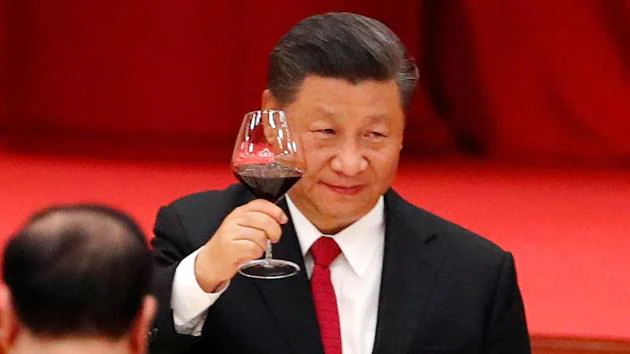China has been operating a covert facility in Cuba since at least 2019, as part of Beijing’s global initiative to enhance its intelligence-gathering capabilities, revealed a Biden administration official. Speaking on the condition of anonymity, the official, lacking authorization for public comments, disclosed that the US intelligence community has long been aware of the Chinese spy base in Cuba and its broader endeavours to establish intelligence outposts worldwide.
The Biden administration has intensified its efforts to counter China’s expansion of covert operations and claims to have made some headway through diplomatic channels and undisclosed measures, according to the aforementioned official, who possesses knowledge of US intelligence on the subject.
The existence of the Chinese spy base was brought to light following a report by The Wall Street Journal, which stated that China and Cuba had tentatively agreed to construct an electronic surveillance station on the island. As per the report, China intended to provide billions of dollars to financially strapped Cuba as part of the negotiations.
In response, the White House categorically dismissed the report as inaccurate. “I have seen that press report, and it is not accurate,” affirmed White House National Security Council spokesperson John Kirby in an MSNBC interview. He emphasized the administration’s longstanding concerns regarding China’s global influence activities, particularly within this hemisphere and region, emphasizing the close monitoring of the situation.
According to the anonymous official, the US intelligence community has determined that Chinese espionage activities from Cuba have been ongoing and are not a recent development.
Cuban Deputy Foreign Minister Carlos Fernandez de Cossio also refuted the report in a Twitter post on Saturday, describing it as baseless speculation aimed at causing harm and alarm without adhering to minimum standards of communication or providing supporting data or evidence.
Shortly after President Joe Biden assumed office in January 2021, his national security team received a briefing from the intelligence community regarding various sensitive Chinese initiatives worldwide. Beijing had been contemplating the expansion of its logistical, basing, and intelligence collection infrastructure to further the influence of the People’s Liberation Army. The examination encompassed potential sites across the Atlantic Ocean, Latin America, the Middle East, Central Asia, Africa, and the Indo-Pacific. The officials also assessed existing collection facilities in Cuba, where China had upgraded its spying operations in 2019.
Tensions between the US and China have persisted throughout Biden’s tenure. Relations between the two countries reached a low point last year following a visit to Taiwan by then-House Speaker Nancy Pelosi, the first such visit by a sitting House speaker since Newt Gingrich in 1997. China, which claims Taiwan as its territory, responded by conducting military exercises around the island.
In early 2023, US-China relations further deteriorated when the United States shot down a Chinese surveillance balloon that had crossed its borders. Additionally, Beijing expressed anger over Taiwanese President Tsai Ing-wen’s stopover in the US the previous month, during which she had an encounter with House Speaker Kevin McCarthy. The speaker hosted the Taiwanese leader at the Ronald Reagan Presidential Library in southern California.
Notwithstanding these tensions, the White House has expressed eagerness to reestablish high-level communications between the two nations. Secretary of State Antony Blinken is scheduled to travel to China next week, a trip that had previously been cancelled due to the balloon incident. According to anonymous US officials, Blinken is expected to hold meetings with senior Chinese officials in Beijing on June 18. The trip is yet to be officially confirmed by either the State Department or the Chinese foreign ministry.
Last month, CIA Director William Burns met with his Chinese counterpart in Beijing. Furthermore, White House national security adviser Jake Sullivan engaged in a two-day meeting with his Chinese counterpart in Vienna in May, during which the administration conveyed its desire to enhance high-level communications with China.
Defense Secretary Lloyd Austin briefly spoke with China’s Minister of National Defense, Li Shangfu, during the opening dinner of a security forum in Singapore. China had previously rejected Austin’s request for a meeting on the sidelines of the forum.


